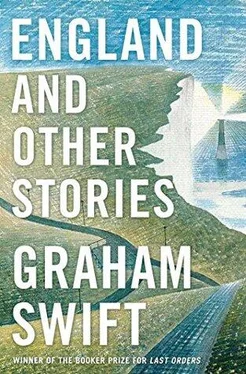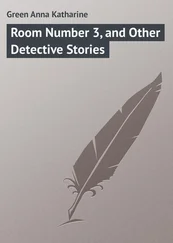I don’t dare believe that she comes because of something I give her. What could that possibly be? Something that she takes from me and can’t find elsewhere, and is worth at least one stray, but now almost routine, night out of seven? I know she has a boyfriend — a regular boyfriend. His name is Nathan. I don’t ask, I don’t picture. But she talks about him freely and unprompted, which makes me think she must talk in the same way to him about me. There have been no repercussions, no phone calls, no dramas. I don’t know how it works with Nathan, this piece of her life with me, a man over twice her age. Maybe he thinks: If that’s the deal. . don’t rock the boat. I’d think the same perhaps, if I were him. Maybe he thinks: Half a loaf. Or, in his case, just the one slice that’s missing.
Tanya.
Only she knows. Or perhaps she doesn’t. She looks at me sometimes with a clear, clean gaze as if she wouldn’t know how to question, to examine anything. She looks at objects in my house, pictures on the wall, as if she wouldn’t know how such things, such collections are assembled. I long ago began to accept, though I was young once, that the young are a mystery, a different species. But people are a mystery, period. You can understand, even correct their bone structure — everyone comes with a skeleton — but where does that begin to get you?
It can’t be because she’s still grateful for her back. Her back! It will be the last thing, standing like this one day, I’ll see of her.
I don’t talk to her about Anthea. I don’t tell her the stories behind those objects she so vacantly inspects. I’m like my father not talking about the war. You don’t want to know. She doesn’t ask.
And so I don’t tell her this very strangest thing, that’s been true now for nearly two months (and how would it help me to tell it?): that when she’s present, so too is my wife. That it’s only been since all this began that I’ve felt my wife come back to me, after three years, as if (it sometimes really seems like this) she’d never gone.
It’s all right, Eric, it’s all right that this is happening. I feel her at my shoulder right now, by the window. I hear her even saying, ‘I hope she comes back.’
Half a loaf? But surely it’s the whole thing, it’s everything. And I wouldn’t mind if it were only a crust. I’d be as joyous, as terrified, as grateful. Some men in my bereft situation might eventually resort to prostitutes, doing so perhaps with much agony and shame, and wanting less to perform or have performed upon them certain acts than to have the simple proximity of warm female flesh. They come perhaps to some sad weekly addictive arrangement.
It’s not like that with me, though I can see it has a semblance. I don’t pay her, I don’t offer her anything, except dinner. Nonetheless, if it were needed — a crust! — I’d empty my wallet every time.
From where I stand right now I can see the brass plate on the white stucco by the front porch (Anthea used to say it made us look like an embassy) that tells me who I am and what I do. I sometimes make bad things come to an end. It’s sometimes been my professional pleasure and privilege to watch people leave me, who I’ll never see again, who suddenly feel alive again ‘in their very bones’.
She sits in a Tube train, no longer having to sit with care because of the pain in her back. But that’s a thing of the past now, she can’t even remember perhaps what it was like. Twenty-six is less than half my age, but not so young that she can afford to follow any strange, diverting path indefinitely. Not so young that, wanting to end it, she might lack the courage or heartlessness to do so.
I know it will end, of course it will end. The day will come. And when it comes I know one other terrible thing for certain. This sense that Anthea is with me and is glad for me, even egging me on, this sense that I’m wrapped in her generosity and that she no longer has to mourn for me, locked out here in the cold zone of life — that too will be gone. I won’t feel her presence, won’t hear her voice in my ear. I’ll be just another lost, dutiful man going once a week to mutter words to a stone and getting no words back.
DR SHAH HAD never ceased to tell the story. ‘I’m as British as you are,’ he might begin. ‘I was born in Battersea.’ Or, more challengingly: ‘My mother is as white as you. You don’t believe me?’
In his early days in medicine, even though by then the National Health had become awash (it was his own word) with black and brown faces, it was not uncommon for patients to cut up rough at being treated by an Asian, or an Asian-looking, doctor. Such a thing could still happen, but now his seniority, his reputation as a top consultant and his winning smile usually banished any trouble. But the story was still there, the chapter and verse of it, or just his satisfaction at relating it once again.
He tended to tell it these days, since it really required time and leisure, during follow-up sessions when the patient might be well on the mend, and in the half-hour slot there’d be little else to discuss. He’d even come to regard it as simply his way of bidding patients farewell. A final prescription. Though it had nothing to do in any clinical sense with cardiology.
‘No, I’ve never been to India. Perhaps I never shall. But my father was born in India. .’
It had lost none of its force, especially now his father was dead and he and his mother were sharing their mourning. Less than a year ago he’d embraced his father, so far as that was possible given his pitiful condition, for the last time. He’d held him close and had the fleeting bizarre thought that he was also holding India. He’d said to his mother, ‘They’re making him comfortable, making him ready, he won’t feel any pain.’
His father wasn’t his patient, but of course Dr Shah knew about such things. For a moment he’d quite forgotten that his mother (it was very much part of the story) had once long ago been a nurse.
As a medical man he should have been protected against grief, but he wasn’t surprised by how much now it overtook him, by how much he still felt, even after several months, the non-medical mystery of his father’s absence.
‘My father was born in India,’ he’d say, ‘in Poona, in 1925. All this will seem like ancient history, I’m sure. In those days of course the British ruled. We ruled.’ Dr Shah would smile his smile. ‘He was born into one of those families who revered the British. He had an education that was better than that of many boys born at the same time in Birmingham or Bradford. Or Battersea. And spoke better English too.’
The smile would only widen.
‘Yes, I know, there were many Indians who didn’t revere the British. Quite the opposite. But when the war broke out in 1939 there was no question that my father, when he came of age, would sign up with the Indian Army to fight for the British in their war. There were many Indians who felt differently. There were many Indians who wanted to fight against the British. But of course I had no say in these things, I wasn’t even around. My father’s name was Ranjit. As you know, that’s my name too.
‘So one day he found himself on a troopship bound for Italy, which was where most of the Indian soldiers who came to Europe went. The fact is I might have been Italian, I might be telling you this in Naples or Rome. Think of that.
‘But because of some mishap of war — they had to switch ships — my father’s unit ended up in England, in the spring of 1944, and it was decided that instead of shipping them all the way back to Italy they should be trained up for the invasion of France.’
Dr Shah would seem to wait a moment, as if to let his story catch up with him.
Читать дальше












